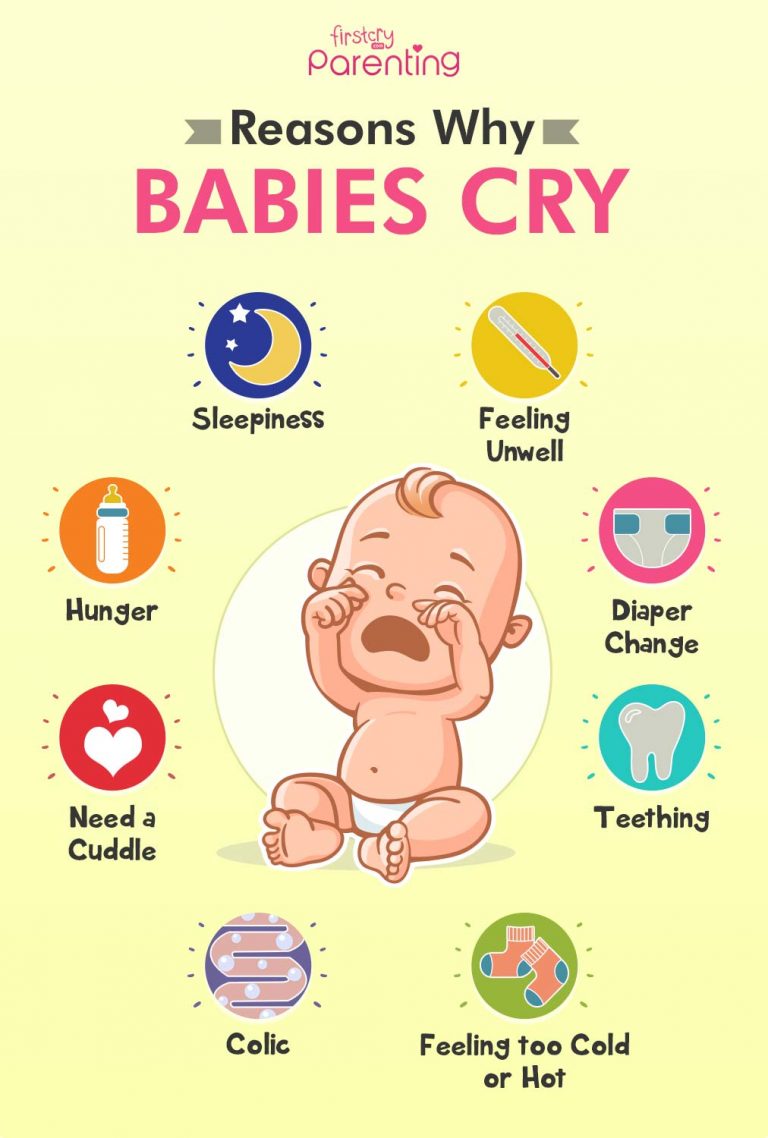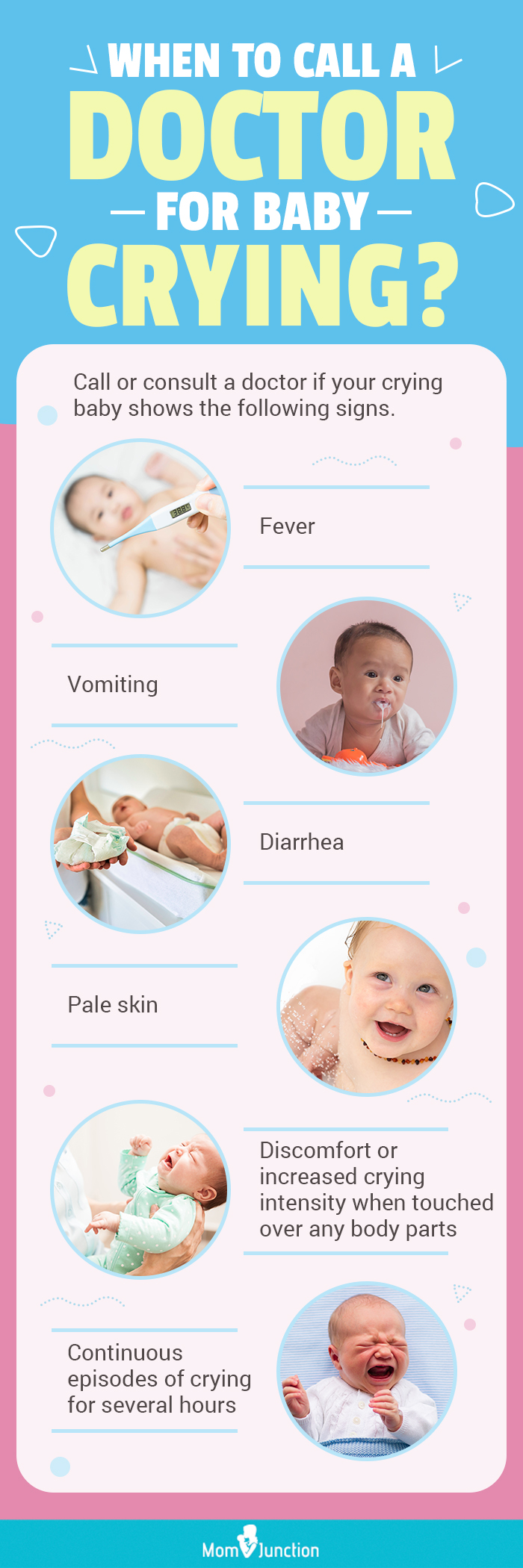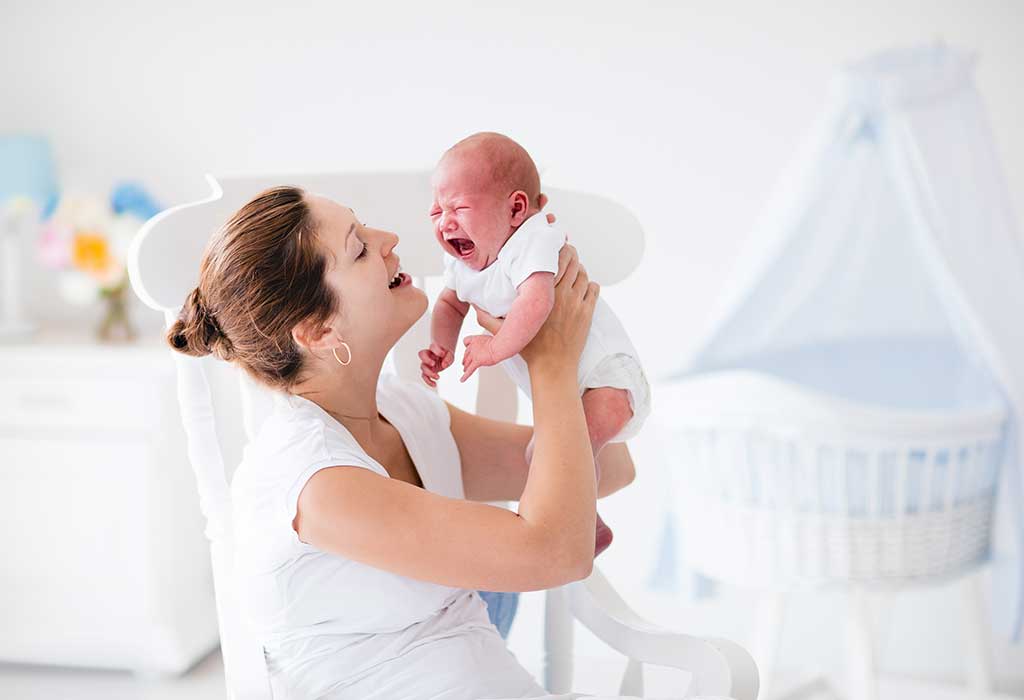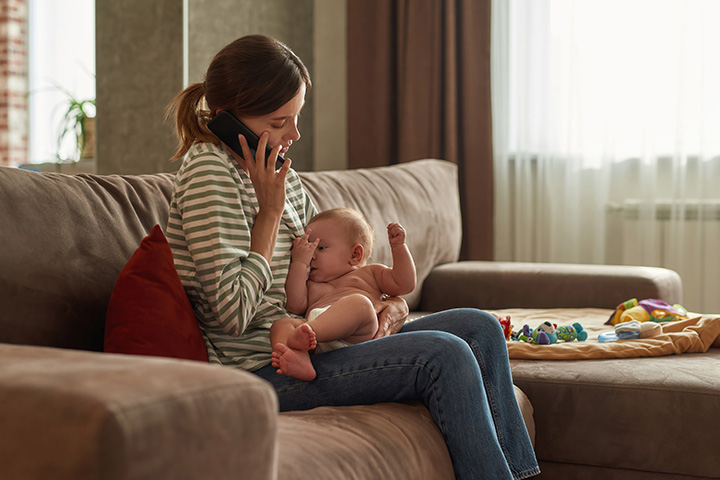Crying In Babies Causes When To Visit Doctor

Crying In Babies Causes When To Visit Doctor Swaddling is the most helpful technique for calming crying babies. it also keeps your baby from waking up with a startle reflex. use a big square blanket and the "burrito wrap" technique: step 1: have the arms inside and straight at the sides. step 2: pull the left side of the blanket over the upper body and tuck. If your baby is crying often, not eating, choking when they spit up, coughing, or showing other worrisome signs, see your doctor to find out the cause. colic symptoms.

Baby Crying Types Reasons And Tips To Cope With It Momjunction 1. tiredness. when babies become tired, they cry. if you suspect that your little one may be crying due to exhaustion, there are some signs to look out for. rubbing the eyes, yawning a lot, an inability to maintain eye contact, loss of interest in fun activities, and irritability are some of them. The cause of colic is not known. although healthy babies can have colic, crying can also be caused by physical problems or their environment. some things that may be related are: gas pain. stomach spasms. exposure to smoke. immature nervous or digestive system. (see checklist at the bottom.) if a crying baby cannot be comforted, the cause may be colic. read on about colic and ways to calm a crying baby. what is colic? colic is a word used to describe healthy babies who cry a lot and are hard to comfort. no one knows for sure what causes colic, but it may be an imma turity of the digestive system. Doctors first ask questions about the child's symptoms and medical history. doctors then do a physical examination. what they find during the history and physical examination often suggests a cause of the crying and the tests that may need to be done (see table: some medical disorders that cause excessive crying in infants and young children).

Crying In Babies Causes When To Visit Doctor (see checklist at the bottom.) if a crying baby cannot be comforted, the cause may be colic. read on about colic and ways to calm a crying baby. what is colic? colic is a word used to describe healthy babies who cry a lot and are hard to comfort. no one knows for sure what causes colic, but it may be an imma turity of the digestive system. Doctors first ask questions about the child's symptoms and medical history. doctors then do a physical examination. what they find during the history and physical examination often suggests a cause of the crying and the tests that may need to be done (see table: some medical disorders that cause excessive crying in infants and young children). Gas. poor weight gain. cow’s milk and soy are the most common causes of food intolerance. “if you suspect a food intolerance, talk to your baby’s provider before making any dietary changes. Sometimes, crying can be due to a problem that might need medical attention. this could be from an infection, an injury, or other health condition that causes discomfort or pain. in these cases, the crying is usually more severe or lasts longer. babies will often have other symptoms, such as: a fever. being very cranky or tired. trouble breathing.

Baby Crying Types Reasons And Tips To Cope With It Momjunction Gas. poor weight gain. cow’s milk and soy are the most common causes of food intolerance. “if you suspect a food intolerance, talk to your baby’s provider before making any dietary changes. Sometimes, crying can be due to a problem that might need medical attention. this could be from an infection, an injury, or other health condition that causes discomfort or pain. in these cases, the crying is usually more severe or lasts longer. babies will often have other symptoms, such as: a fever. being very cranky or tired. trouble breathing.

Comments are closed.